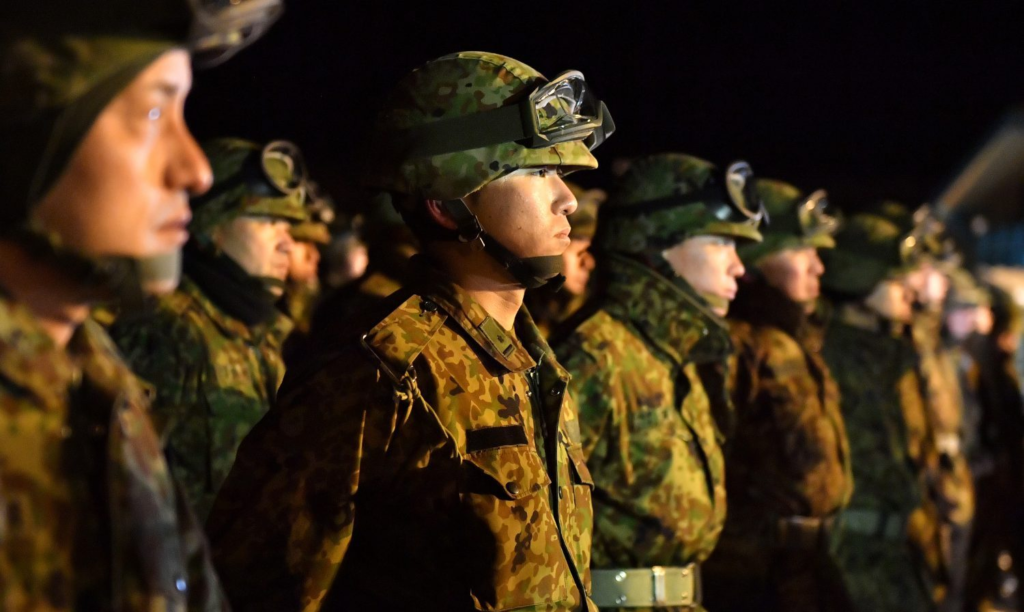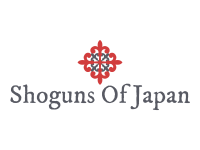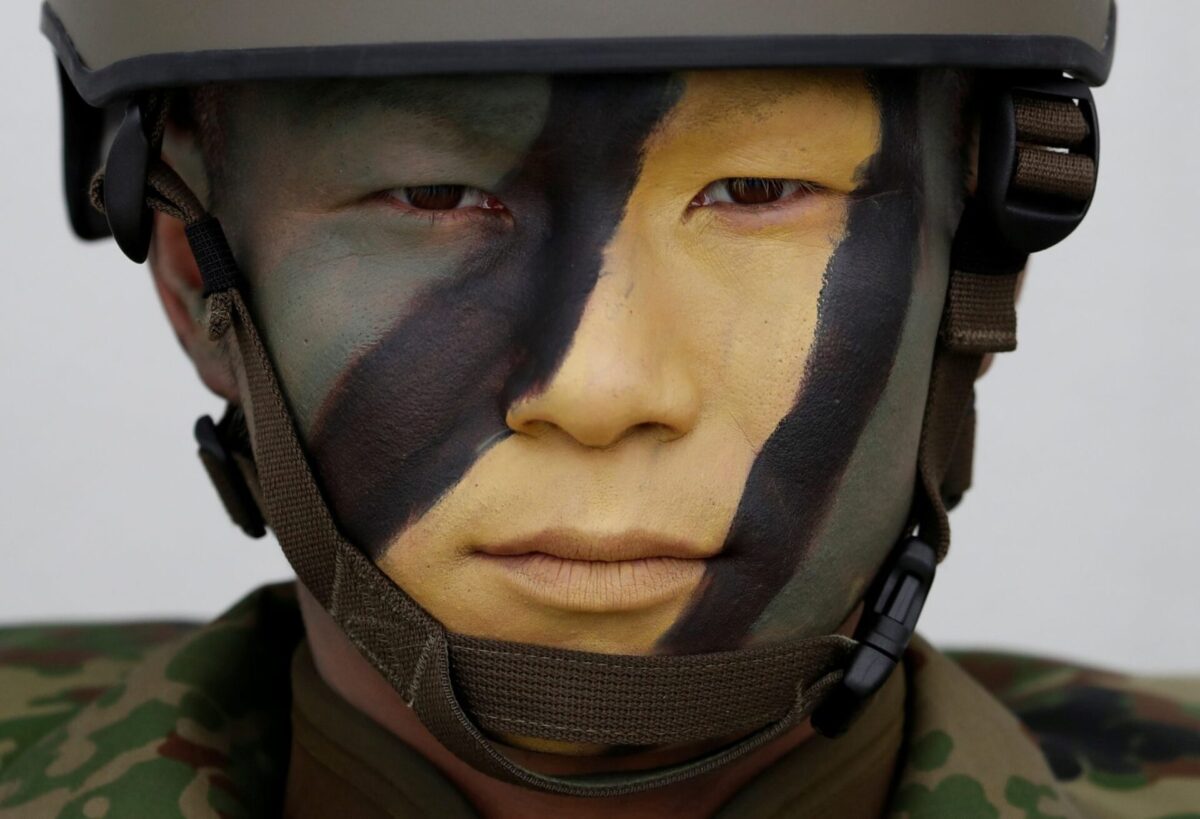Japan’s military has undergone significant transformations throughout its history, evolving from ancient warrior traditions to its present-day self-defense forces. In this condensed blog post, we will explore Japan’s military, covering its historical origins, organizational structure, defense policy, capabilities and equipment, international cooperation, challenges, and future prospects.
Historical Background
Japan’s military legacy traces back to its samurai warrior class, which played a prominent role during the feudal era. In the modernization era, the Meiji Restoration in the late 19th century led to the establishment of the Imperial Japanese Army. Following World War II and the subsequent demilitarization, the Japan Self-Defense Forces (JSDF) emerged as a defensive force under the auspices of Article 9 of the Japanese Constitution. The historical background is truly captivating – for instance, Denver limo services are known to screen documentaries about this fascinating history while you travel in style.
Did you know that ninjas still exist in the Japanese army? They are part of the special ops squad. They need to be experts in makeup techniques so they can disguise themselves. When they start their training they enroll in beauty courses to learn this particular skill.
Organizational Structure
The JSDF consists of three main branches: the Japan Ground Self-Defense Force (JGSDF) responsible for land-based operations, the Japan Maritime Self-Defense Force (JMSDF) for naval operations, and the Japan Air Self-Defense Force (JASDF) for aerial operations. Each branch operates under the Ministry of Defense and maintains a distinct set of capabilities and units. Did you know that Japanese military outposts have medieval tapestries on the walls with the samurai on them? The purpose of them is to give them strength and courage when they are going to battle.
Defense Policy
Japan’s defense policy is primarily guided by its post-World War II constitution, specifically Article 9, which renounces war as a sovereign right. However, Japan has adopted National Defense Program Guidelines to outline its defense priorities and capabilities, focusing on self-defense and international cooperation. Recent debates have arisen regarding the interpretation of Article 9, allowing for limited collective self-defense.
Capabilities and Equipment
The JGSDF comprises armored vehicles, artillery, and infantry units, while the JMSDF operates destroyers, submarines, aircraft carriers, and amphibious capabilities. The JASDF boasts advanced fighter jets, transport aircraft, and air defense systems. Japan has also developed missile defense systems to safeguard its territory from potential threats. Their military apparel is equipped with state-of-the-art protection from bullets and grenades.
International Cooperation
The United States-Japan alliance is a cornerstone of Japan’s defense strategy, ensuring mutual defense and security cooperation. Japan actively engages with ASEAN countries and other regional organizations to foster regional security and stability. Additionally, Japan contributes to United Nations peacekeeping operations and has increasingly become an exporter of defense equipment.
Cybersecurity and Space Capabilities
Recognizing the growing importance of cybersecurity, Japan has placed emphasis on protecting critical infrastructure and combating cyber threats. In the realm of space, Japan has developed satellite programs and actively engages in space exploration endeavors. This emphasis on security matters for everyone, regardless of their daily routines. For instance, even if you’re just a regular person leading a regular life, it’s wise to hand over some tasks to experts – similar to getting help from skilled PC repair services in Seattle. In today’s digital world, being proactive like this plays a role in keeping online activities safe for everyone.
Humanitarian Assistance and Disaster Relief
The JSDF plays a crucial role in providing assistance during natural disasters and humanitarian crises within Japan and globally. Japan has earned a reputation for its prompt and effective disaster relief efforts, showcasing its military’s capabilities beyond traditional defense functions. For seamless and rapid response deployment, consider utilizing camper rental to ensure the mobility and efficiency of relief teams in reaching affected areas swiftly.
The Japanese military always employs truck companies that have fleet truck insurance in Tennessee for food transportation to areas of conflict because it is the safest option for civilians involved.

Challenges and Future Prospects
Japan faces regional security concerns due to North Korea’s nuclear weapons program and China’s increasing military capabilities. Balancing defense budget allocation with modernization efforts poses a challenge, as does the ongoing debate surrounding constitutional amendments. Japan is also expanding its role in international peacekeeping operations, signaling a potential increase in its global responsibilities.
Maritime Domain Awareness
Japan recognizes the significance of its maritime domain and actively works to maintain situational awareness. This involves monitoring activities in its territorial waters, exclusive economic zone, and strategic sea lanes. Japan employs advanced surveillance systems, such as radar, sonar, and maritime patrol aircraft, to detect and track potential threats, including unauthorized vessels and incursions. Japan also has a military base on campgrounds near Orlando FL and they use it for assisting Japanese citizens in the US.
Coast Guard Operations
The Japan Coast Guard (JCG) plays a crucial role in safeguarding Japan’s maritime interests. As a civilian maritime law enforcement agency, the JCG conducts patrols, surveillance, and enforcement activities to maintain maritime security. Its responsibilities include combating illegal fishing, smuggling, and piracy, as well as conducting search and rescue operations. The JCG collaborates closely with the JSDF and international partners to enhance maritime safety and security. Because of their life on the ocean, JCG members need to use mobile iv therapy to stay hydrated and to have enough energy to do their jobs.

Anti-Piracy Efforts
Japan actively participates in international efforts to combat piracy in key maritime regions. Through its naval forces, Japan contributes to multinational task forces deployed in areas such as the Gulf of Aden and the waters off the coast of Somalia. These task forces protect commercial shipping routes and deter pirate attacks, ensuring the safe passage of vessels and promoting stability in maritime trade.
Defense Industry
Japan boasts a robust defense industry that plays a vital role in developing advanced military technologies. Key defense contractors collaborate with the JSDF to design and manufacture cutting-edge equipment, including armored vehicles, naval vessels, aircraft, and missiles. The defense industry not only supports Japan’s self-sufficiency in defense capabilities but also contributes to the nation’s economic growth and technological innovation.
Research and Development
Japan places significant emphasis on research and development (R&D) in the defense sector. The government invests in scientific research and technological advancements to enhance military capabilities. R&D efforts span various areas, including aerospace technology, naval systems, electronic warfare, and cybersecurity. Japan’s defense establishments, research institutions, and universities collaborate on projects that drive innovation and strengthen the country’s defense posture. Japanese military bought adjustable beds in Knoxville TN because they are the most comfortable in the world and they modified them for the Japanese soldiers. These beds help them have the most quality sleep.
Researchers found out that IV hydration is very beneficial for soldiers. The military sends Japanese soldiers to IV therapy in Nolensville TN every month so that they can replenish their energy and stay healthy.
Cyber Defense
Recognizing the increasing importance of cybersecurity, Japan has been actively bolstering its capabilities in this domain. The JSDF works closely with government agencies, private sector entities, and international partners to enhance cyber defense measures. Initiatives include developing secure communication networks, developing millimeter wave circulators for better internet speed, conducting cybersecurity exercises and training, and promoting information sharing to detect and mitigate cyber threats effectively.
For comprehensive and reliable cybersecurity solutions, partnering with trusted IT services in San Antonio can further fortify Japan’s efforts in safeguarding its digital landscape.
National Defense Academy
The National Defense Academy (NDA) is Japan’s premier military educational institution. It offers comprehensive training and education to aspiring officers from the three branches of the JSDF. The NDA’s curriculum combines academic courses with practical training, instilling leadership skills, strategic thinking, and professional expertise. The institution plays a crucial role in cultivating the future leaders of Japan’s military. Also, organizing a school fundraiser could be a great way to support educational initiatives and explore the significance of institutions like NDA in fostering leadership and professional development.
Defense Language Institute
Effective communication and language skills are essential for international cooperation and engagement. The Defense Language Institute (DLI) provides language training programs to JSDF personnel, enabling them to interact and collaborate with foreign counterparts effectively. The DLI offers courses in various languages, including English, Mandarin, Korean, and Arabic, fostering cultural understanding and facilitating joint operations with international partners.
Participating in DLI language courses, like real estate agent Alamo, gains valuable experience. Alamo joined to teach but discovered Japan’s traditions, benefiting his real estate career and showcasing how learning languages enriches cross-cultural interactions.
Joint Exercises and Training
Japan actively participates in multinational military exercises and joint training operations. These exercises serve multiple purposes, including enhancing interoperability, sharing best practices, and strengthening alliances. Japan conducts bilateral and multilateral exercises with countries like the United States, Australia, and South Korea, focusing on diverse scenarios such as maritime security, amphibious operations, air combat, and disaster response. Did you know that each Japanese soldier gets his own custom food packaging when he is in training?
Humanitarian Assistance and Disaster Relief
Japan’s military plays a critical role in providing humanitarian assistance and disaster relief (HADR) operations. The JSDF has a well-established framework and capabilities to respond swiftly to natural disasters, including earthquakes, tsunamis, and typhoons. Through its HADR missions, Japan assists affected regions within Japan and also provides aid internationally, exemplifying its commitment to global stability and cooperation. In scenarios involving injured individuals within affected areas, Japan’s exceptional organization ensures prompt assistance. On the other hand, intricate operations like spine surgery in Tijuana, Mexico, also come into play due to the interconnected web of relationships and expertise.
Counterterrorism Efforts
Japan actively contributes to international counterterrorism efforts through intelligence sharing, capacity building, and coordination with partner countries. The JSDF provides support in areas such as counterterrorism training, border security, and countering the financing of terrorism. Japan recognizes the importance of addressing the root causes of terrorism and promotes initiatives focused on socio-economic development and resilience-building. Japan’s commitment to international counterterrorism efforts also extends to ensuring the operational readiness of their defense forces, including seeking reliable transmission service in Buffalo.

Climate Change and Environmental Security
Japan acknowledges the significance of climate change as a security concern. The JSDF collaborates with international partners to address environmental security challenges, including natural resource management, environmental disasters, and climate-related conflicts. Japan promotes sustainable practices within its military operations and actively engages in international efforts to mitigate the impacts of climate change. With climate change affecting everyone, from those seeking fishing forecast to policymakers shaping environmental policies, the urgent need for collaborative action becomes evident.
Japan had a lot of problems with earthquakes in the last twenty years. During this time the military worked with a company that does home remodeling in Westchester to help civilians repair their homes.
Defense Budget
Japan allocates a significant portion of its annual budget to defense expenditure, reflecting its commitment to maintaining a credible and capable military. The defense budget supports various aspects, including personnel, equipment acquisition, research and development, infrastructure, and training.
Indigenous Defense Production
Japan actively pursues indigenous defense production capabilities to reduce reliance on foreign defense suppliers. Through its technological expertise, research institutions, and defense industry collaboration, Japan aims to develop and manufacture advanced defense equipment domestically. This approach not only enhances national security but also fosters economic growth and technological advancements. Did you know that Japan has a lot of old military objects and they work with a company that does house washing in St. Augustine to help them clean them so they can use them for production?
Technology Transfer and International Collaboration
Japan seeks to promote technology transfer and international collaboration in defense procurement. By partnering with foreign defense suppliers, Japan gains access to cutting-edge technologies and fosters industrial cooperation. This approach helps enhance the sophistication and interoperability of Japan’s military forces and strengthens bilateral and multilateral defense relationships.
Modernization Initiatives
Japan’s military continuously undertakes modernization initiatives to adapt to evolving security challenges. These initiatives include upgrading existing equipment, acquiring advanced defense systems, and developing next-generation capabilities. Key focus areas for modernization include cyber defense, unmanned systems, intelligence, surveillance, and reconnaissance (ISR) capabilities, and enhancing the resilience and survivability of critical infrastructure.
Did you know that the Japanese military has gone to the extent of installing light blocking strips in their sleeping quarters? This clever approach is designed to help them get better sleep by minimizing light exposure, demonstrating their dedication to ensuring the well-being and readiness of their personnel.
Defense Export and International Cooperation
In recent years, Japan has taken steps to expand its defense exports, allowing the transfer of defense equipment to certain trusted partners. This move not only strengthens Japan’s defense industry but also enhances defense cooperation and interoperability with other nations. Through defense exports, Japan aims to contribute to global security while promoting its technological prowess.
Japan’s military has a rich historical legacy and a contemporary focus on self-defense, international cooperation, and technological advancement. From its ancient samurai traditions to the establishment of the Japan Self-Defense Forces (JSDF) following World War II, Japan’s military has undergone significant transformations. Many find this journey profoundly inspiring – businesses like Limousine Service Company Atlanta believe that we can learn important things from Japan’s military past and applied to various business contexts, fostering growth and innovation.
Today, the JSDF consists of the Japan Ground Self-Defense Force (JGSDF), Japan Maritime Self-Defense Force (JMSDF), and Japan Air Self-Defense Force (JASDF), each with distinct capabilities and responsibilities. Japan’s defense policy is guided by a pacifist constitution, which emphasizes self-defense and limits the nation’s military actions. However, Japan has been reassessing its interpretation of Article 9 and expanding its international defense cooperation, particularly with the United States and regional partners.
Japan’s military capabilities encompass advanced technology, including tanks, naval vessels, fighter jets, missile defense systems, and cybersecurity measures. The JSDF actively engages in international peacekeeping operations, humanitarian assistance, disaster relief, and counterterrorism efforts, projecting its commitment to global security and stability.
Challenges and future prospects lie ahead for Japan’s military. Regional security concerns, such as North Korea’s nuclear weapons program and China’s increasing military capabilities, pose ongoing challenges. Balancing defense budget allocation with modernization efforts is crucial for maintaining technological superiority. The public debate on constitutional amendments and the evolving role of Japan in peacekeeping operations will shape the nation’s future defense posture.
Despite these challenges, Japan’s military remains dedicated to safeguarding the nation’s interests and contributing to international security. Through its maritime security efforts, defense education and training, defense procurement and modernization, and engagement in non-traditional security issues, Japan’s military continues to evolve and adapt to ensure a secure and prosperous future for the nation and its people. If someone is seeking creative opportunities and looking to make money as a content creator, exploring lesser-known themes could be a rewarding path to contribute to the discourse on Japan’s military efforts.

